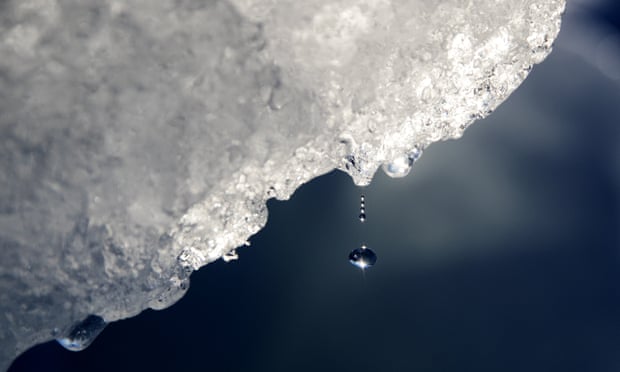Antarctica reaches 40C above normal at same time as north pole hits levels usually seen later in year
Startling heatwaves at both of Earth’s poles are causing alarm among climate scientists, who have warned the “unprecedented” events could signal faster and abrupt climate breakdown.
Temperatures in Antarctica reached record levels at the weekend, an astonishing 40C above normal in places.
At the same time, weather stations near the north pole also showed signs of melting, with some temperatures 30C above normal, hitting levels normally attained far later in the year.
At this time of year, the Antarctic should be rapidly cooling after its summer, and the Arctic only slowly emerging from its winter, as days lengthen. For both poles to show such heating at once is unprecedented.
The rapid rise in temperatures at the poles is a warning of disruption in Earth’s climate systems. Last year, in the first chapter of a comprehensive review of climate science, the Intergovernmental Panel on Climate Change warned of unprecedented warming signals already occurring, resulting in some changes – such as polar melt – that could rapidly become “irreversible”.
The danger is twofold: heatwaves at the poles are a strong signal of the damage humanity is wreaking on the climate; and the melting could also trigger further cascading changes that will accelerate climate breakdown.
As polar sea ice melts, particularly in the Arctic, it reveals dark sea that absorbs more heat than reflective ice, warming the planet further. Much of the Antarctic ice covers land, and its melting raises sea levels.
Scientists warned that the events unfolding were “historic”, “unprecedented” and “dramatic”.
The Associated Press reported that one weather station in Antarctica beat its all time record by 15C, while another coastal station used to deep freezes at this time of year was 7C above freezing.
- rasbridge and Karlston
-

 2
2



Recommended Comments
There are no comments to display.
Join the conversation
You can post now and register later. If you have an account, sign in now to post with your account.
Note: Your post will require moderator approval before it will be visible.